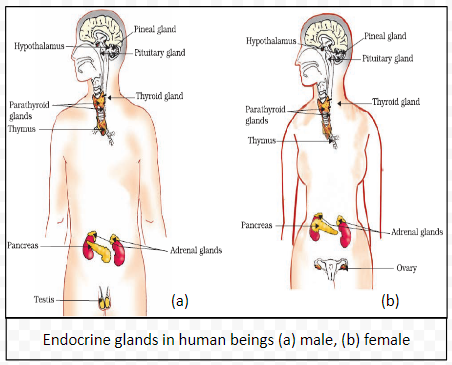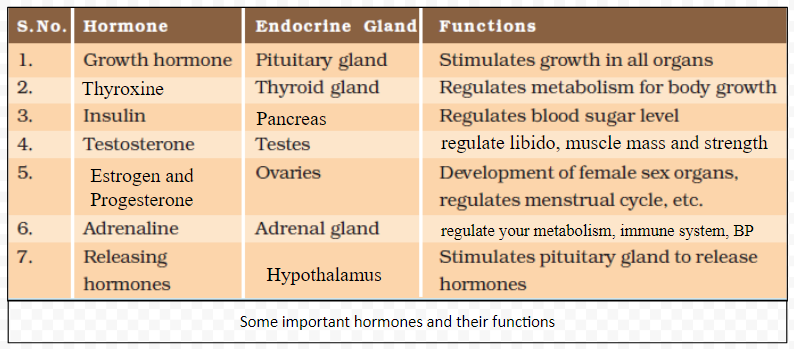![]() 21 Dec 2023
21 Dec 2023
Hormones play a crucial role in regulating various physiological processes in animals. These chemical messengers are produced by specialized glands and travel through the bloodstream to target cells or organs, where they elicit specific responses.

Role of Animal Hormones in regulating Growth and Development:

| Hypothalamus plays an important role in the release of many hormones. For example, when the level of growth hormone is low, the hypothalamus releases growth hormone releasing factor which stimulates the pituitary gland to release growth hormone. |
<div class="new-fform">
</div>